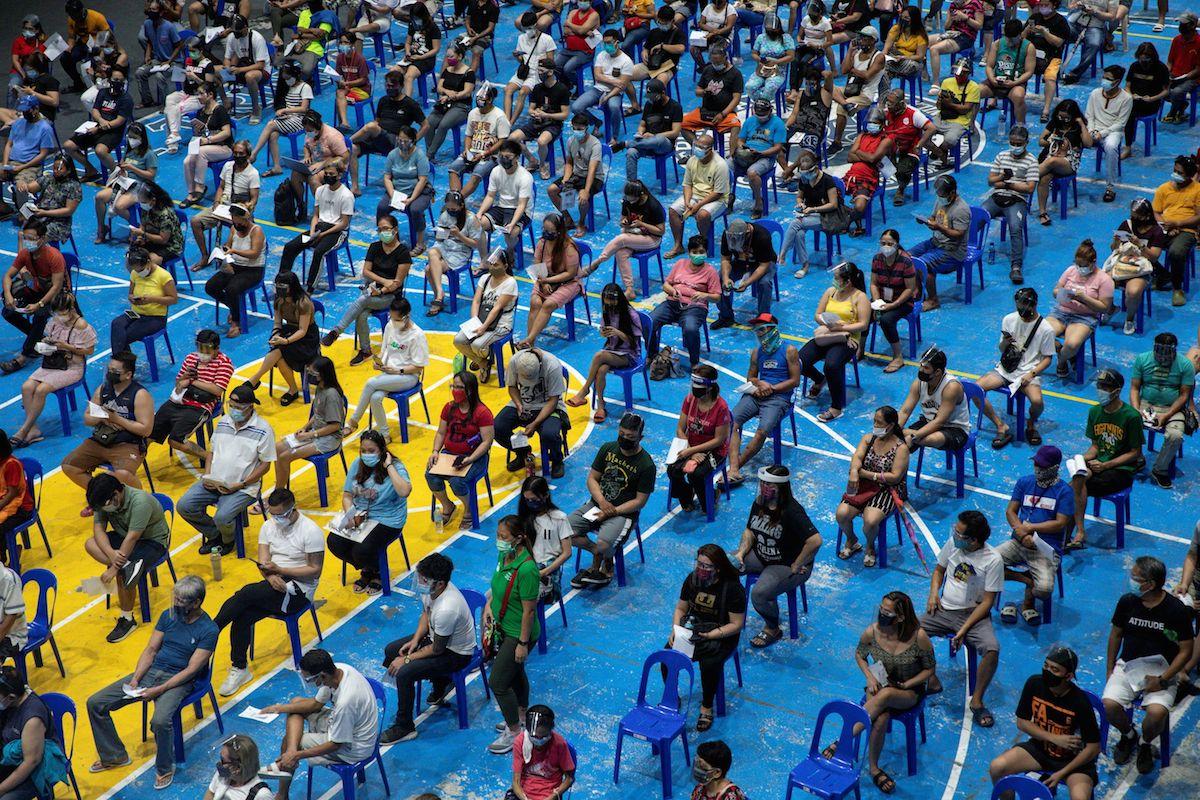
More than half of Filipino adults said they are willing to get vaccinated for COVID-19 if the vaccines available are “safe and effective,” results of an OCTA Research Group survey showed.
According to OCTA Research’s Tugon ng Masa National Survey conducted from July 12 to July 18, 2021 and released on Monday, 53% of adult Filipinos said they were willing to get inoculated while 16% said they did not want to get vaccinated.
The percentage of those willing to get vaccinated increased by 34 points from the 19% registered in OCTA’s January 2021 poll.
Further, the OCTA survey also found that the number of adult Filipinos who said they would not get vaccinated went down by 30 points from January’s 46%.
Meanwhile, 18% of those polled said they were still undecided on the COVID-19 vaccination. This number is lower by 17 points from the 35% reported in January.
“[R]oughly one in every five adult Filipinos are still undecided if they will get vaccinated or not,” said OCTA.
OCTA also noted that Balance Luzon had the biggest percentage of Filipinos willing to get inoculated.
Across socio-economic classes, adult Filipinos willing to get vaccinated ranged from 51% to 56%.
“A significant increase in the willingness to get vaccinated is observed from socio-economic class D,” OCTA said.
Skepticism over safety
Being unsure of the safety of vaccines was among the top reasons why Filipinos refuse to get vaccinated.
A total of 78% said they don’t want to get vaccinated because they are “not sure if vaccines are safe.”
This was followed by 22% who responded that they are not sure if vaccines are effective.
Then, 5% claimed vaccines are not needed to curb the coronavirus disease, 2% said vaccines are expensive and 1% said vaccines are not free.
The Visayas had the highest percentage of those who were unsure if vaccines were safe at 84%, and not sure if vaccines are effective with 29%.
This was followed by Filipinos in Mindanao with 77% who responded that they are unsure if COVID-19 jabs are safe and 22% are unsure of the vaccine’s efficacy.
The poll used interviews of 1,200 respondents, and had a sampling design with a 95% level of confidence and a ±3% margin error. — DVM, GMA News

0 Comments